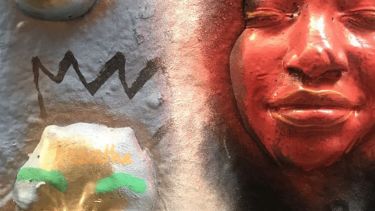New Directions in Critical Disability Studies

A space for critical thinking
In this online, open access publication, we are excited to share shortened summaries of some of the presentations delivered by postgraduate researchers working within the field of critical disability studies (CDS).
The symposium
‘New Directions in Critical Disability Studies’ was held on Tuesday 9th July, 2019 at the University of Sheffield. The day, organised by PhD researchers Leah Burch, Martina Smith and Josephine Sirotkin, brought together postgraduate researchers working within the field of disability studies. We sought to create a safe space for postgraduate researchers to come together as a collective in support of one another. Hosting a one-day symposium offered a wonderful opportunity to learn with and from one another, and to engage with the exciting new directions being taken within CDS.
Disrupting the normative boundaries of the human
Goodley, Liddiard and Runswick-Cole (2018, p. 206) describe CDS as a ‘nascent field of scholarship and activism that explicitly engages with transformative fields of inquiry including queer, postcolonial, indigenous and feminist studies.’ In this way, CDS is a continually evolving and developing field that urges us to question, rethink and ultimately, disrupt the normative boundaries of the human. CDS asks us to consider how and why these rigid boundaries have been created. In particular, it calls for an examination of how these boundaries serve particular types of bodies and minds, whilst marginalising others.
Developing work around the concept of ableism has been, and continues to be, integral to the field of CDS. Notably, the work of Fiona Kumari Campbell has paved the way for unearthing, and confronting, the beliefs and practices that produce the ‘corporeal standard’ (Campbell, 2009). That is, we are asked to reflect upon the ways in which particular types of [non-disabled] selves and bodies are considered as normal and desirable. By unpacking this process of desirability, it is possible to challenge the process of marginalising certain Others outside of the boundaries of the human. It is not only disabled people who can come to occupy this peripheral spacing, but also women, children, queer, people of colour and poor people (Goodley, 2013). Importantly, then, whilst CDS begins with disability to rethink the category of the human, it does not end here or do this in isolation. Intersectionality is integral to this project.
The need for greater intersectional and international inquiry
CDS starts with disability to enable an open and critical space that grapples with a range of political, theoretical, and practical issues that are relevant to all of our minds and bodies (Goodley, 2011). Moving firmly away from binary understandings of the human condition, CDS scholars take into account the continuous and undefined ‘becoming’ of bodies and the complex intersectional experiences underpinning this process (Meekosha & Shuttleworth, 2009). The need for greater intersectional and international inquiry foregrounds the basis for CDS and has become an increasing topic of importance within the context of creeping ‘neoliberal-ableism.’ (Goodley, 2014).
The use of this concept brings together a concern for the ways in which bodies are increasingly individualised and made to compete. It describes a context that is regulated by narrow notions of personhood and body management, which are held captive to ableist standards that demand independence, work-readiness, and economic production (Goodley, Lathom & Runswick-Cole, 2014). Countering this, CDS recognises the ‘fragile and contingent nature of personhood’ which accepts rather than denies our inherent vulnerability (Beckett, 2006, p.3).
An open and flexible space for CDS discussion
In order to contest and challenge these normative modes of thinking, our call for abstracts was intentionally broad. We sought to provide an open and flexible space for these new directions in CDS to be debated and discussed. Whilst broad, presenters and attendees were brought together with a shared interest in CDS and the emerging directions of this interdisciplinary and international field of research. In our call for abstracts, we posed the following questions:
What does it mean to be human?
What does it mean to be pushed to the peripheries of the borders of the human?
How might we confront these borders and rethink the dominant territory of the “normal” human?
How, as a collective of postgraduate researchers, can we have honest and open conversations about what the human is, isn’t and could be?
Papers
Relational ethics, relational aesthetics, by Anne-Marie Atkinson
More or less-than-human? by David Hartley
Employment mobilisation: Unexpected story by Kim Dearing
Performances from the peripheries by Neslie Carol Tan
Personal independence payment and the necropower of austerity by Rebecca Louise Porter
Ableism technology and (de)construction of stigma by Rebecca Maskos
The production of the 'effective' special needs parent by Sharon Smith

iHuman
How we understand being ‘human’ differs between disciplines and has changed radically over time. We are living in an age marked by rapid growth in knowledge about the human body and brain, and new technologies with the potential to change them.
